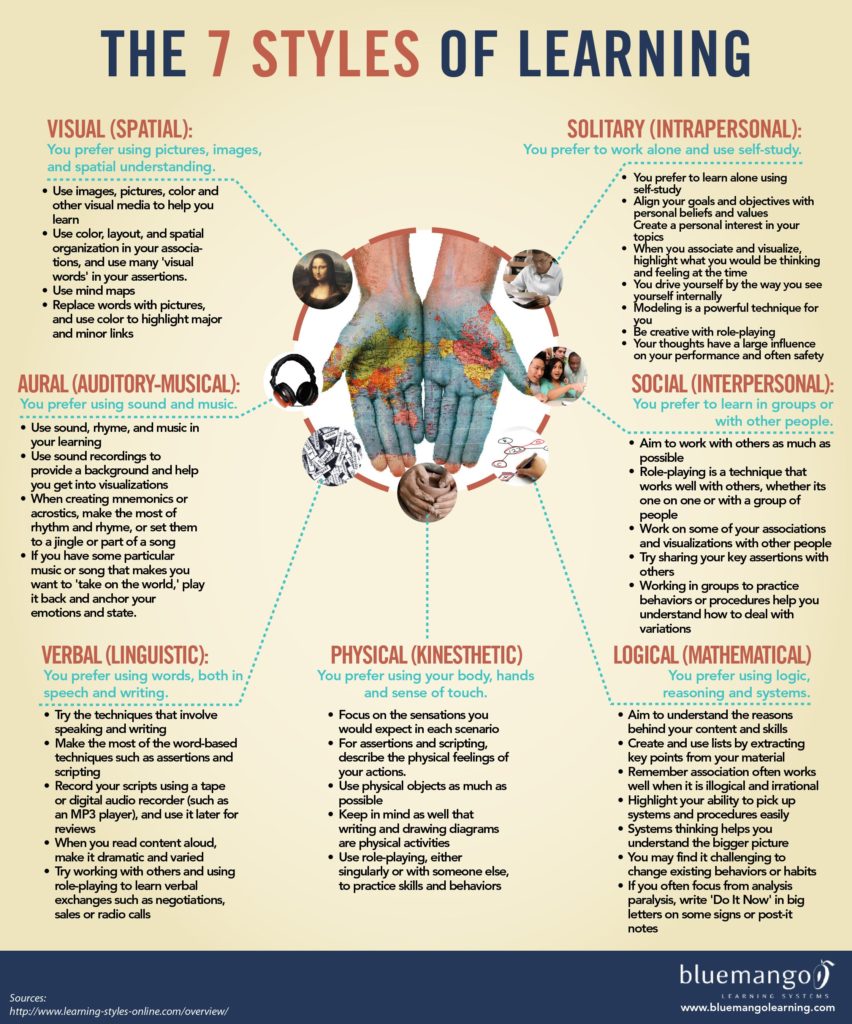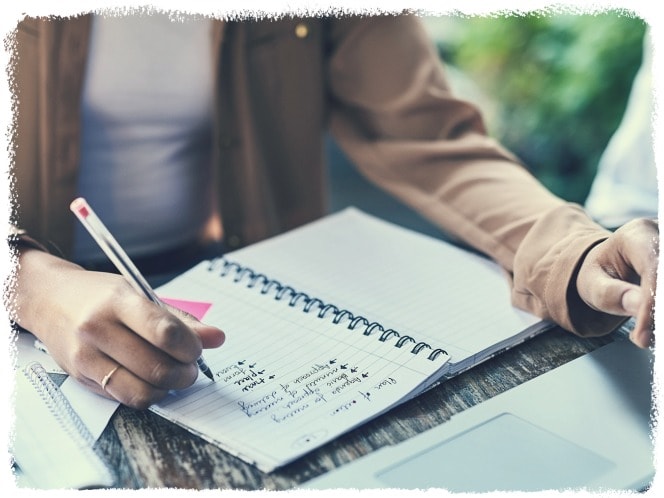There might be affiliate links on this page, which means we get a small commission of anything you buy. As an Amazon Associate we earn from qualifying purchases. Please do your own research before making any online purchase.
Are you a student looking to build effective study habits? Is your study routine not as effective as it could be?
Maybe it’s time to follow a new study schedule that will help you better retain material, manage your time, help you retain information and even help you improve your concentration and focus.
Here are 13 good study habit examples you can use to enhance your learning style, develop a quality study routine and start achieving your educational goals.
Let’s get to it.
#1 – Keep Track of Important Dates
Carrying different dates around in your head is a surefire way to forget or start muddling up important dates. Getting a planner or calendar is an easy way to store this vital information.
A calendar or planner allows you to keep track of due dates, examinations, and various tasks to complete for different projects – having this on paper eases your mental load.
A good planner allows you to keep track of everything you need to know and also allows you to organize your own time easily. This leads to more effective studying and less wasted time.
To get started, here are our recommended study planners.
#2 – Know Your Dominant Learning Style
It’s important to know that there are many different styles of learning and each person will retain information better in different ways.

Once you have figured out which style of learning works best for you, it will help you determine how to study, where to study, when to study, what distracts you and what study aids you should use.
Consistency gets results!
Make your study habit part of your morning routine so that it becomes an effortless part of your day. Get excited about learning instead of dreading your study schedule.
To learn more about the different learning styles, read our article on the Learning Retention Pyramid.
#3 – Create and Write Down Realistic Study Goals
If your goal is too big to achieve, then you might be setting yourself up for failure and this will also not help motivate you to study and accomplish your SMART student goals, or if you're in college, your SMART college student goals.
Once you know your learning style, do a self-assessment of your current study habits and your current grades.
Here are some questions to ask yourself that will help you create realistic goals and come up with a plan for good study habits.
After answering and reflecting on these questions, you’ll be able to see areas where you need to focus.
Maybe you are not spending enough time doing the right amount of work necessary each day or perhaps you choose to study late at night when you’re not as alert and energetic.
If you have noticed your grades are slipping in certain courses then perhaps you need to hire a tutor to help you with those subjects.
Social commitments or spending time on social media can eat away the hours. While it’s fun to socialize, pruning back some time spent here to study can pay off hugely in the long run.
Use the SMART method when setting up goals: set Specific, Measurable, Achievable, Relevant, and Time-bound goals.
Check out this guide to learn the 13 steps to write and set SMART goals.
#4 – Make Study Time a Part of Your Daily Routine
If cramming all of your study time into a few long days isn’t working for you then it’s time to try something new (and way less stressful). Make time for studying every single day, with or without exams coming up.
Remember that consistency is key and once you start getting into good study habits, it will become a routine and that you will be able to maintain throughout the school year. Self-discipline is key.
Check your schedule for the week or month, and see where you have free time or what you can discard:
Some people work best in the mornings, and others, at night. If you’re unsure when you work best, try studying at different times of the day to see which suits you and your body clock best.
READ: The Study Plan Schedule Strategy (That Actually Works!)

Once you have found which blocks of time work best, you can always add in additional time to study by waking up an hour early to review your notes, or an hour later if you study better at night.
Make sure you build flexibility into your schedule. Your calendar and schedule will change because of unforeseen events. Be ready to plan around some things that come your way and still make time to study.
#5 – How to Structure Your Daily Study Routine
The following are some great ideas to structure your study routine. These work best when you are using a mixture of learning styles as mentioned above.
Start with watching or attending your lectures, and then doing an additional one to three hours of personal study (with breaks) to review your notes on those lectures.
This way, you are using both auditory and visual learning styles as well as repetition, which will help fix what you’re learning into memory.
Start with the difficult topics and subjects first, so that you are not going to put them off until a later date. Shorter study sessions are more effective for subjects you find difficult.
To get started, we recommend you time block your study session so it looks like this:
If you want to see what this looks like then here are 17 free study plan templates.
#6 – Establish a Study Zone
Establish a study zone, especially if you're engaged in virtual learning. Some people like quiet places, others will need a little bit of background noise.
Which one do you prefer?
If there is too much going on at your house then maybe it’s time to think about going to the library or a coffee bar and using headphones.
Make sure you have the necessary items with you when you study. You’ll need a desk that’s big enough to spread your books, laptop, paper, and supplies.
Using the best study lighting is also important for everyone when studying. If you want to preserve your eyesight and maximize your time and energy, then choose lighting that will not cause eyestrain or fatigue so you can keep your study session effective at any time of the day.
Don’t be afraid to establish boundaries in your study zone. Let anyone living with you know when your door is closed, it means you do not want to be disturbed. Try not to be distracted by phone calls or texts, as this breaks your focus.

It’s best to find not just one place to study, but at least two or three additional options. This way, you will have a backup plan in case your main study area can’t be used.
A change of environment is said to improve concentration and creativity so even if you don’t need to change places, it wouldn’t be a bad idea.
While you establish rules for others, you also need to establish rules for yourself:
Also, here are a few helpful study tips to get the most out of your study session:
One way to make prioritizing your tasks simple is to organize your study notes by using colors or labels. Whether you use an online notebook or a binder, developing your own color-coding system will help you (and your thoughts) get organized.
You can use colors to color-code your subjects, projects and even teachers. You can also use different colored pens, highlighters, sticky notes, folders and labels.
Colors and labels will also help you later when you when you need to review your notes, the colorful sections will help those notes stand out and be unique and memorable.
If you struggle to understand complex study material, using the Feynman technique can help you learn faster and more efficiently.
#7 – Take Great Notes
Do you find yourself struggling with taking good notes?
Develop your note-taking skills to aid what you’re in the process of learning. When you review your notes, they should help you study and remember the most essential information.
You don’t need to take notes of everything! If the teacher keeps repeating something or has written down any important terms – you should make note of this.
Your note-taking style might also depend on your learning style like we mentioned above. Perhaps you might need to draw little diagrams in your notes if you are more of a visual learner.

An auditory learner will learn better if you record the class discussions and lectures, or you can listen to informational and educational podcasts related to the subject. Your notes do not need to be handwritten if your learning style is auditory.
A good study routine plays to the strengths of your learning style.
Another fun way to remember things is to use mnemonics for better memory recall. For any type of list, steps, stages or parts you can use mnemonic devices to help you retain information. Mnemonic types include: music, name, expression, rhyme, spelling and more.
(If you're looking for another way to improve your memory, check out these memory games.)
#8 – Review Your Notes
Before and after your study sessions, you should always skim your notes from the recent lesson or topic you studied before starting on a new one. Reviewing your notes once before going to bed will also help to cement new knowledge into your brain.
You can get the most out of your notes by breaking up the topic you’re learning into shorter tasks. Spending over an hour reviewing your notes is counter-productive but shorter review blocks are a powerful learning strategy.
Finally, if you have piles of notes and are struggling to find the ones you need – you can digitize your notes! This resource tells you how to digitize your notes in 3 easy steps.
#9 – Use Technology Wisely During Class
If you are using a laptop for note-taking in class, then make sure you are still able to focus and pay attention. Laptops and phones can bring down your grade. Don’t believe us? This Michigan State University article shows why surfing the web in class is a bad idea.
You don’t want to get into the habit of surfing the web, checking social media, or using your smartphone in class. if you’re frequently checking the internet or your smartphone when studying, then you’re likely to sabotage your own learning efforts in the classroom.
#10 – Consider Joining a Study Group
Social learners should consider forming a study group. Study groups help you to remember and learn more effectively because you can ask questions to clarify difficult points. You also get the added advantage of discovering how others learned a subject or solved a problem.
One of the best benefits of joining a study group is that you will be able to ask, discuss, debate, and quiz each other on the topics at hand. You could even keep your study group online if traveling to one spot won’t work well for everyone.
In order to find study groups that will work for your needs; find people as dedicated as you are. You don’t want to study with a group that isn’t devoted and willing to work hard.
The study group's numbers shouldn’t be too big, or else it becomes more of a party. Having around 6 people in a group allows you all to benefit without it becoming distracting and counter-productive.

Exchange contact details or establish a means of communicating and decide on a location to host your study group. You will have to organize the group to fit everyone’s schedule to get the most benefit.
The most important thing is creating the logistics of the group – you meet up at the same place and have a reliable schedule. You should also determine how you’re going to communicate (you could use Slack, Whatsapp, etc) this keeps everyone in the loop and makes it easier to meet up.
The best study groups are not a competition. Some members of the group might pick up things faster than others, but this is an opportunity to demonstrate your own learning and fill in any gaps in your knowledge.
#11 – Ask for Help
There are plenty of resources available for anyone who might be stuck. It’s never a bad idea to ask for help and assistance and make the most out of the resources that are there to provide it.
Professors are usually more than willing to help any student who is struggling with a topic ( as it shows an honest effort to learn what they’re teaching). They can also help to explain a subject in a different light if your notes aren’t making sense.
You can also leverage the help of a tutor if you’re struggling with a specific topic. A tutor can help you in a one-to-one setting – which is especially valuable as they can cater the topic you’re struggling with to your learning style.
#12 – Get Enough Sleep and Rest
Studying when you’re sleepy is ineffective. If your body is telling you that you’re tired, then have a nap or go to bed early.
A good night’s sleep will help you understand and remember information better. It is also much less stressful to take an exam or attend a class when you feel well rested and alert.
If you’re finding that you are getting stressed out or tired, reflect back on your study schedule and priorities.

Make sure that you have dedicated time for rest and de-stressing. You can’t be a study machine 24/7 and taking some time away from learning is a great way to relax your mind.
Good study habits require you to be fresh and sharp. A good night's sleep is far more effective than a night cramming for a test could ever be.
If you want some handy tips this guide will cover 17 healthy ways to fall asleep earlier.
#13 – Create a Daily Study Timetable
Make sure you track your grades along with your study hours and lesson notes to see if your new studying techniques are helping.
If you find that it is not helpful, then it’s time to re-prioritize your schedule to fit in more time for studying and re-examine your goals for success:
Final Thoughts on Good Study Habits
You can use your morning routine to set yourself up for success in your learning efforts. When you start applying and practicing your study habits you will see a big difference in the quality of your learning.
Take a look at this study plan schedule strategy if you want to beat procrastination and make any learning project much easier.
Looking for more ways to improve your learning ability? Here's our post on how to learn anything fast!
Finally, if you want a PROVEN method to mastering your next test, then take this short masterclass on how to study for exams and getting excellent grades.



Reading this post I noticed some underlying principles, useful in developing good habits in any area:
-know thyself
-break your goals into disciplines
-focus
-take a proper care of your body
-track your results and tune your methods
Hi SJ – good stuff, as usual. thanks for the post.
I am a big fan of having a good study routine. Personally, it was one of those little things that have made a big difference, not only to my grades when I was a student, but also later in my life.
In my opinion, the key to success is also to keep the motivation up and focus on intrinsic rewards (rather than extrinsic): the road to mastery, your purpose/mission and achieving the milestones toward your big goal. Tracking your progress is a great way of keeping the focus on your intrinsic motivation.
I just wanted to add one more thing to the section on creating a study routine: make it enjoyable. How? set it up the way you can look forward to it. For instance, I do it in the morning, before my family gets up: and it’s my best time of the day (peak productivity), my ‘me time’, my favorite cup of coffee, and I really enjoy it. I still get up at 5.15am, even though I’m not at the uni anymore. I always find something to learn – I’ve done many MOOCs, and other courses. I don’t HAVE to, but I do it for the joy of learning.
SJ, love your books. Could I get the contact info for your designer (I’ve heard you’re willing to share that.). Also, I do a podcast for traders with about 20,000 listeners and would love to interview you about “waking up happy” and morning routines sometime.
My contact info is rob at robbooker.com
Rob,
First of all, I would love to do your podcast. It is an honor. Shoot me an email at stevescottsite AT gmail DOT com and we will set up a time that is good for both of us.
Re: Cover Designer: The person I use is Kyle. He charges around $150 for a cover design. If you’d like to use a certain graphic, then you’d need to purchase it off a website (I use iStockPhoto.com for this.) What Kyle provides is the basic, “Kindle-Ready” cover. That means if you need the design converted to a paperback version, that’s something he charges extra for.
This is a great post SJ!
Habit 1 resonated with me so much and because it is very true that each of us have his or her own comfortable learning style. I remember back in high school and college, I used to study for major exams just after midnight. I will eat early and make sure to be in bed by 6 or 7PM. I will sleep until 12AM to 1AM and then get up and study with a cup of coffee right by my side. I love the tranquility of those hours. Place is quiet, except for the sound of barking dogs so I was able to focus.
Thanks for sharing!
That is an interesting way of studying. I also love that quite time when no one is awake. It really is a good time to get things done!
What’s the name of your editor? Can you provide a link? I assume he or she is on elance
I am writing these comments a few dozen times, Idk why but the commenst plugin doesnt approve my website?
About the goal topic, I want to add that there is a book titled Goal suck and James Altucher says goals will fail you when themes will help you succeed.
Sorry, comment was sitting in my “approve” queue. Once and a while it wordpress drops people in there, even though they have had approved comments before. I will shoot you an email with editor info shortly.
Goals suck. That is a Matt Stone book. I know that guy. I agree, mostly. Goals are essential and vital, IMO. But spending too much time focused on goals and not enough on doing is a recipe for failure. Like many other things moderation is the key to using them with success.
This is nice and effective post SJ. Thanks a lot.I love to learn and again thanks for the precious 11 study habits.Thanks!!!
I am really very thankful to you for such 11tips for studies.
What are some of the benefits of having a good study timetable and a good time schedule?
Yes, I agree. I’m studying for a public tender in my country. Ihaven’t girlfriend, for I need time. Will be do I doing the right thing? I need help you all. It’s not nice to live without a partner, but i’m trying the impossible. Am I toward the right way? This is my doubt.
See you!!!!!!!
I think it is best to always work on yourself first. The women will come in time, and it is a lot easier to get/keep them with a good job.
I really liked this article, it was really refreshing! You did a great job writing it, and I can tell you did your research. All of these tips have the potential to help you utilize your study time better. However, it is a good idea to try various things until you hit on the exact combination of factors that allow you to develop good study habits and ultimate success in your future.
Good information. I’ve written an article about effective study habits. The techniques of an effective way of studying the lessons are based on cognitive science studies. Maybe the article can add to the information you have here. If you want you can visit http://psychlens.com/effective-study-habits/. Thanks a lot for sharing this wonderful piece of information.
-Some info that I found helpful, was to not eat a big meal before studying, because it will cause you not to focus.
-Something that I will do this year, is use study habits that work for me/I like. For ex: I like visual studying/videos.
-a tip of my own, is to use flash cards.
wow this is amazing, things i took for granted or less important are things that are helpful, it changed my mentality toward reading, this is great, thanks for the tips.
I am not good at study and you written a long essay , if I good at study why should i searched for good such kind of tips looking such tips which change my life towards study , please give some good and interactive tips which really helps .
Regards,
AJ
Very well written and useful.
I like how you distinguish different ways for people because we all are very different.
‘As you can see, visual learners learn best when pictures, images, and spatial understanding is used.
Auditory learners prefer using music, sounds or both.
Kinesthetic learners prefer a more physical style of learning through using the body, sense of touch and hands.
Logical learners desire to use reasoning, logic and systems.
Verbal learners will prefer using words in writing and speech.
Social learners will prefer to learn with other people or in groups.
Solitary learners are able to learn best alone.’
That’s thoughtful.
Thanks for explaining these 7 types of learning to us. Each student will have different statistics. of learning. But the only thing depends is how you learn and effectively implement the same in your learning. One must isolate yourself from all your distractions. One must not waste time too much. And also one must find the best time to study. You gave nice tips.
Wonderful post. These habits are ones that all of us should use but we sometimes forget in the rush of every day work. A great list to keep nearby and remind yourself to slow down and pay attention. Thanks.
Wow! Really great post. The 4th one is really important. When I was a kid, I used to study continuously but after sometimes this is quite difficult for me to remember anything. That’s why I love Pomodoro technique. Study for a while and take 5-10 minute rest.
You also discussed study zone and style of learning. This really important because a learning environment can help us to learn quickly as well as effectively.
Thanks for Sharing!
SJ, I genuinely liked this one.
very interesting and of course knowledgeable too..
thank you so much as i am a bit (not a bit ,very very much) lazy .
it was good though
keep motivating!!!!!!!!!!!
It’s actually very difficult in this active life to listen news
on Television, thus I just use internet for that reason, and
get the most recent information.